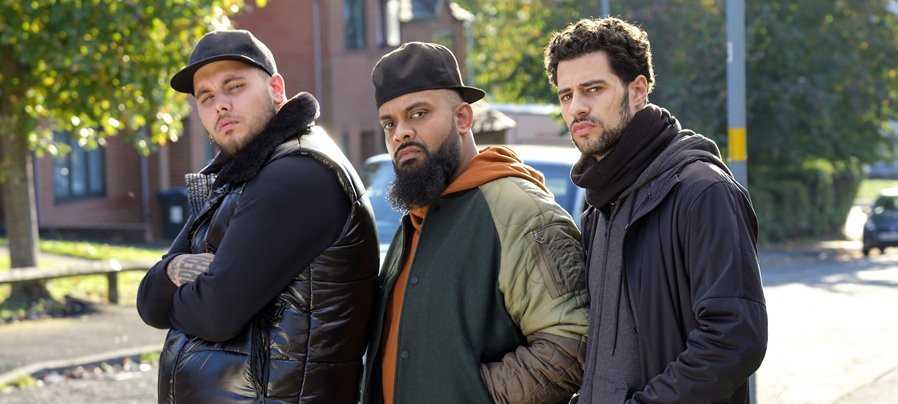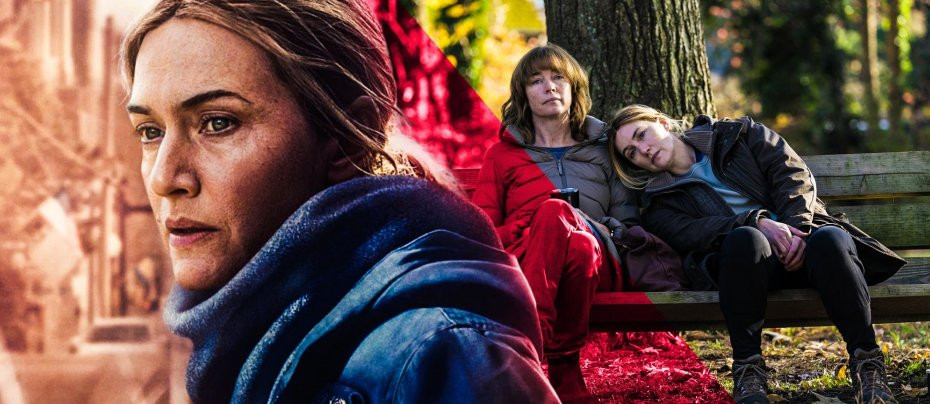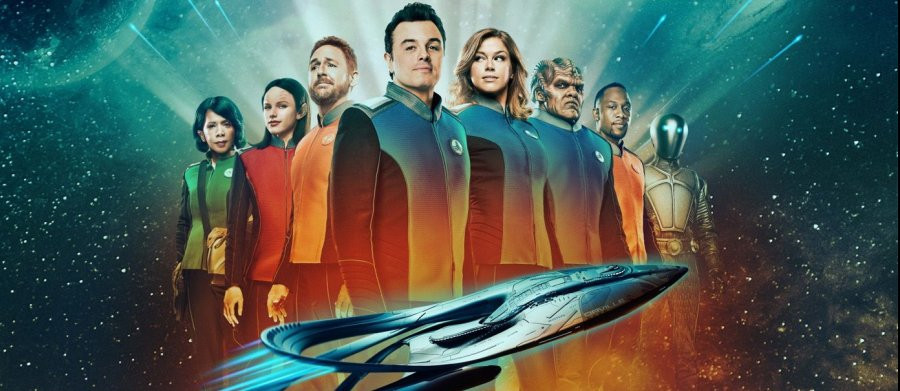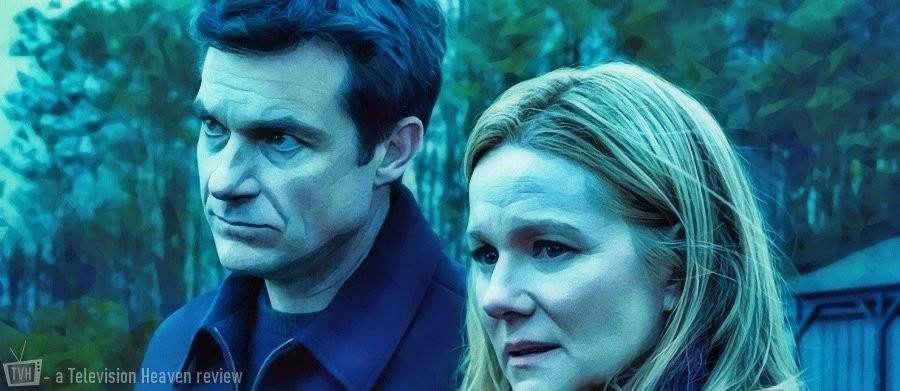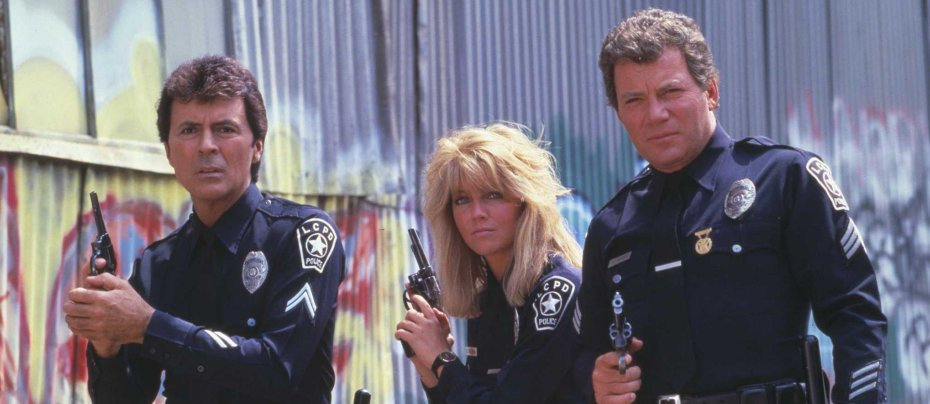
Comrade Detective
2017 - RomaniaReview: John Winterson Richards
A clever idea can sometimes be a little too clever for its own good. Marketing for Comrade Detective has maintained the fiction that it really is what it pretends to be, a classic 1980s Romanian detective series, rediscovered, restored, and redubbed into English.
Since Communist Era propaganda entertainment is hardly attractive to most people, this may have limited its appeal, so it is not as well known as it deserves.
For it is neither an old show nor, except superficially, an Eastern European one. It is, on the contrary, a brilliant satire on what it pretends to be. Like all the best satire, it keeps a straight face and tries to look as much as possible like what it is satirising.
The plot is formulaic, almost deliberately cliched. A hard bitten detective seeks vengeance for the murder of his partner. In the process, he uncovers a highly organised smuggling operation. There are the usual false leads, fall guys, femme fatales, set ups, interrogations, chases, shootouts, and supposedly unexpected twists, before right - or, in this case, left - prevails in the end.
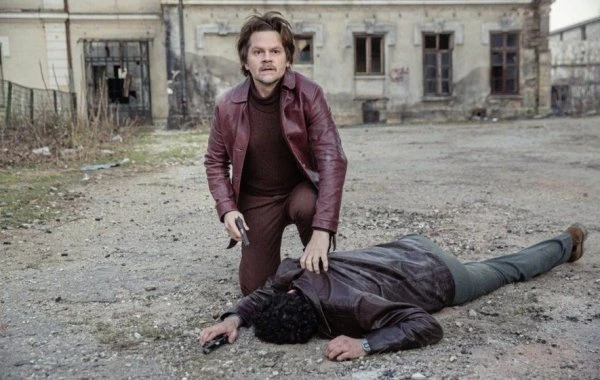
The whole thing was filmed in Romanian on location in Romania with an entirely Romanian cast and a mostly Romanian crew. Its style conforms to all the classic tropes of the "cop show" genre, and in particular the more "realist" school that came into fashion in the 1970s and 80s. At first glance, it could even be mistaken for one of the more serious Euro thrillers that have enjoyed a lot of popularity in Britain in recent years, albeit one with an apparently retro setting.

The Romanian actors are pitch perfect, especially Florian Piersic as our hero, Gregor Anghel, keeping in character with complete conviction. It must have been hard to resist the temptation to play it for laughs, but everyone plays it seriously. Honestly, with some minor adjustments, this could have been a solid police procedural in its own right.
It is the touches that those minor adjustments would have had to remove that make all the difference.
Marxist propaganda is everywhere, but it is built into the structure of the story so as to make it seem normal and natural. So the smugglers who are corrupting Romanian youth - much to the disgust of our hero and all the decent characters - are importing not drugs but American music, blue jeans, and, most frightening of all, Bibles.
The dialogue is peppered with constant casual references to how good things are in Romania, and how horrific they are in the West. Everyone takes it for granted that Romania has the best health service in the world, Romanian police are very efficient and never corrupt, Romanians are all very cultured, and Romania is a wholesome place to bring up a family. Indeed, this idealised vision of Romania is, curiously, a place with small-c conservative family values and old fashioned patriotism.
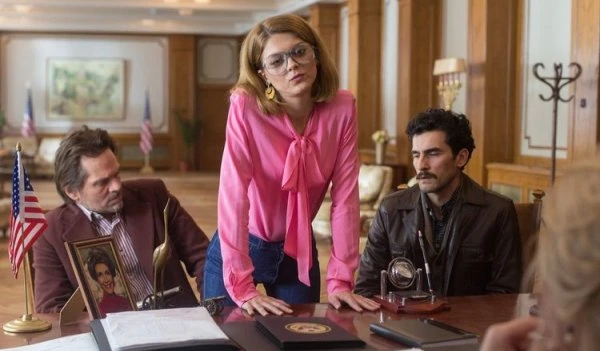
America, by contrast, is a dog eat dog world, populated almost exclusively by prostitutes, pimps, drug addicts, and people with AIDS. Capitalism is also represented by very unlikely American diplomats, a villain wearing a Ronald Reagan mask, and a criminal's mansion that looks like something out of a cut price version of Miami Vice.

Yet there is also a subtle hint of a lack of self perception in Utopian Romania when the sympathetic characters show a casual acceptance of torture and the loss of human life, as if the propaganda is not quite as clever as it thinks. Nor does the propaganda hide the general poverty and drabness of the Workers' Paradise, possibly, it is implied, because everyone making the "original" series took them for granted.
It is perhaps worth emphasising - because many people watching Comrade Detective these days might be unaware of it and take the show at face value - that in real life in the 1980s, the Marxist regime of Nicolae Ceausescu made Romania a particularly ghastly place to live, even by the standards of Eastern Europe at the time. Economic conditions were very poor and the notorious Securitate very oppressive. Smuggling, or even possession, of a Bible or American consumer products could actually lead to severe penalties. People really were tortured and killed for no more than asserting basic freedoms.
There was therefore nothing amusing about Ceausescu's Romania, and perhaps Comrade Detective should not be inviting us to laugh at it. One cannot imagine a similar show being made satirising the "Kripo," the ordinary Criminal Police as opposed to the Gestapo" or State Secret Police, in National Socialist Germany.

Yet Comrade Detectivegets away with it because it never loses its fine sense of the ridiculous, and because it has important things to say about the nature of propaganda. The best propaganda does not look like propaganda, or at least it blends in with our expectations of a genre so completely as to seem normal and natural, as it is shown aspiring to be in Comrade Detective. A lot of Marxist propaganda is very sophisticated in this regard. Indeed, the BBC bought quite a number of shows from totalitarian regimes in Eastern Europe which depicted living there as very pleasant for use as cheap children's programming - rather endorsing the stereotype of what some people think about the BBC. Those of us who grew up loving the likes of The White Horses did indeed find ourselves wondering if life behind the Iron Curtain was really as bad as some people were saying.
Of course, The White Horses was about as typical a depiction of the experience of most people in Tito's Yugoslavia as Dallas was typical of life in the West.
So Comrade Detective performs a valuable function in satirising a form of propaganda that is effective because it is insidious - but the satire works on several other levels at the same time. It is satirising not only Eastern European television, but the whole "realist" style of the 1970s and 1980s, which produced grungier police shows all over the world - The Sweeneybeing a fine British example. It also seems to be satirising more recent Euro thrillers.
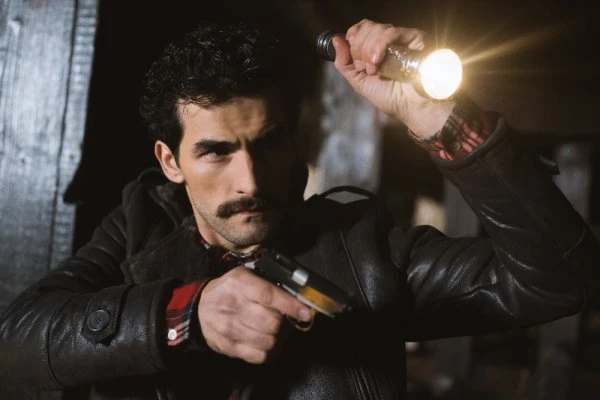
Finally, it is satirising the West as much as the Marxist East. The point is made clumsily - or perhaps satirically - in a pseudo intellectual introduction by actor Channing Tatum and controversial investigative journalist Jon Ronson that America had its own propaganda at the time. It is almost inevitable that the John Milius film Red Dawn is mentioned, but that only serves to contrast the more sophisticated Marxist propaganda that Comrade Detective is satirising with the crude - and, after the 1960s, rare - American attempts at using mainstream entertainment to convey an explicitly anti-Communist message.
It is also interesting to note how many of the negative things said in Comrade Detective about Christianity and America, intended as comic exaggerations of Marxist anti-Western propaganda, are now commonplaces in the Western media. Are we being invited to reflect that Marxism may have lost the Cold War but is winning the Culture Wars? If so, we might wonder what exactly is being satirised here? Marxism or the response to Marxism?
Tatum's involvement - he is also an executive producer - may remind some of another of his projects which prompted exactly the same question. In the Coen Brothers film Hail, Caesar, he plays a famous actor who really is a Soviet agent during the McCarthy period. We are never quite certain whether it is his character's hypocrisy and idiocy which are being ridiculed or the possibility that anyone might think that such a character could exist.
He keeps a commendable straight face in the pompous introductory sessions - but then he always does: is this because he is a truly great actor or a very limited one? No one is entirely sure, and he rather exploits that here. Either way, he has a delicious moment with Ronson when they discuss books.
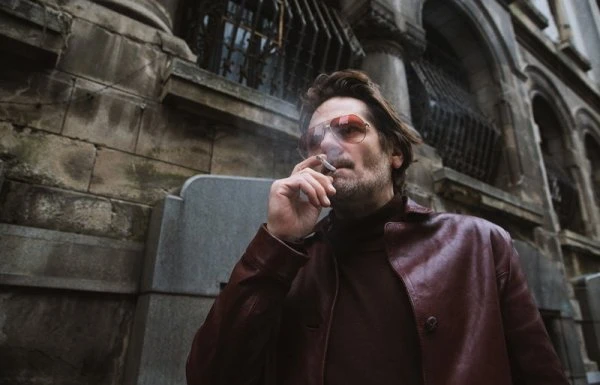
Tatum also provides the English language dubbing of the voice of Gregor. In this he heads a distinguished American voice cast including Joseph Gordon-Levitt, Richard Jenkins, Kim Basinger, Debra Winger, Nick Offerman, and Chloe Sevigny, with a guest appearance by Briton Daniel Craig. The dubbing cast play it straight like their Romanian counterparts, and obvious gags, like making a dubbed speech a lot longer or shorter than the corresponding lip movements, are generally avoided.
In the end, there is really only one joke in Comrade Detective, and, although it is a good one, it probably goes on a bit too long. It keeps up a good pace throughout, but six episodes is a bit of a stretch. Nevertheless, it merits a wider reputation as an innovative, well produced, well written, and well acted show with a clever premise that proved entertaining to the end while not being afraid to make the viewer think a little. It would be interesting to know what the Romanians themselves made of it all.
John Winterson Richards is the author of the 'Xenophobe's Guide to the Welsh'and the 'Bluffer's Guide to Small Business,' both of which have been reprinted more than twenty times in English and translated into several other languages. He was editor of the latest Bluffer's Guide to Management and, as a freelance writer, has had over 500 commissioned articles published.
He is also the author of ‘How to Build Your Own Pyramid: A Practical Guide to Organisational Structures' and co-author of 'The Context of Christ: the History and Politics of Rome and Judea, 100 BC - 33 AD,' as well as the author of several novels under the name Charles Cromwell, all of which can be downloaded from Amazon. John has also written over 100 reviews for Television Heaven.
John's Website can be found by clicking here: John Winterson Richards
Books by John Winterson Richards:
Seen this show? How do you rate it?
Seen this show? How do you rate it?
Published on November 2nd, 2020. Written by John Winterson Richards for Television Heaven.


